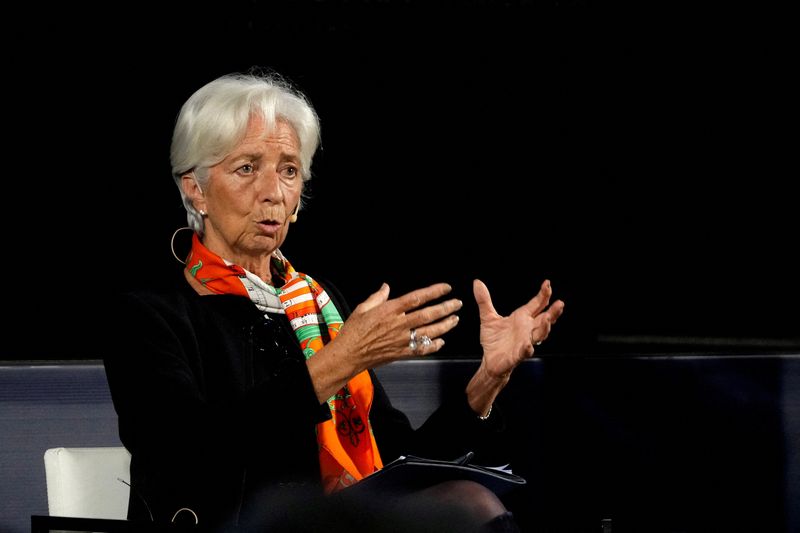BANGKOK (Reuters) - European Central Bank President Christine Lagarde warned on Friday that some European governments' fiscal policies could lead to excess demand, and that fiscal and monetary policies need to work in synch for sustainable, balanced economic growth.
"Fiscal policies that create excess demand in a supply constrained economy might force monetary policy to tighten more than would otherwise be necessary," Lagarde said at a conference hosted by the Bank of Thailand and Bank for International Settlements in Bangkok.
"Regrettably, at the moment, at least some of the fiscal measures that we are analysing from many of the European and particularly euro area governments are pointing in the direction of the latter category," she said, referring to measures that could trigger excess demand.
The European Commission expects the euro zone economy to shrink in the fourth quarter of 2022 and in the first three months of 2023 because of surging energy prices and rising interest rates which undermine spending, borrowing power and confidence.
"We need higher investment and structural reforms to remove the supply constraints and ensure that potential output is not impaired by the changing global economy. And that's a big question and an uncertainty that we have," said Lagarde.
"And in a world where external demand is more uncertain, we will also need to strengthen the domestic supply and demand through higher productivity growth," she said.
With inflation running at five times its 2% target, the ECB has raised interest rates at its fastest pace on record this year and a string of hikes over the coming months is still likely as price growth will take years to tame.

Its rate on bank deposits was increased by 200 basis points to 1.5% in three months.
"What we central bankers have to do is to actually deliver a monetary policy that anchors expectations... We need to signal to the public, to the observers, to the commentators, that in all scenarios, inflation will return to our medium term target in a timely manner," said Lagarde.